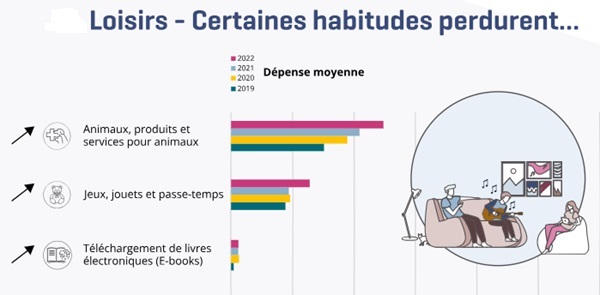 Credit: Statec
Credit: Statec
On Monday 27 November 2023, Luxembourg's national statistics office, Statec, published a report addressing the main consumer trends since the health crisis in Luxembourg, i.e. post-pandemic.
Luxembourg experienced an economic slowdown during the two years of the COVID-19 crisis; according to Statec, this period saw household consumption habits change drastically.
With the lifting of health restrictions, the year 2022 marks a “return to normal” for households. The COVID-19 period nevertheless seems to have left lasting traces and households have not completely resumed consumption habits that prevailed before the start of the health crisis. The recent surge in energy prices and the surge in food prices have forced households to make choices regarding their consumption. Consequently, certain expenditures still remain at a higher level today than in 2019, while others have not returned to their pre-crisis value.
Leisure
Since the pandemic, Luxembourg households are spending more on pets and animal accessories (+64%) and games (+45%), with downloading of ebooks up 173%. The sales and maintenance of bicycles has risen 40%, with the spend on musical instruments and other leisure activities up 88%.
Meanwhile, cultural spend (outings to the cinema, theatre, etc.) is down 24% on pre-pandemic figures, with the purchase of campervans, etc., down 29%.
Food and drink
Food and drink expenditure for home consumption has risen 27%, while restaurant spending has risen 4%. Other other hand, spending in office and school cantines has fallen 36% and bsuiness at bars and cafés has fallen 46%; meanwhile, food deliveries have soared 56%.
Offices & Teleworking
The drop in spend in office cantines, and increase in food purchases for preparation at home, may be explained by the move to teleworking (working from home), at least in part.
The spend on IT equipment has increased 58%, with fuel spend increasing 60%.
Home renovations
The amount people are spending on home renovation products now, compared to pre-pandemic, is now six times what it was beforehand, up to over €3,000 in 2022 compared to just over €500 in 2019, with the amount spent on home removation services more than doubling in the same period.








